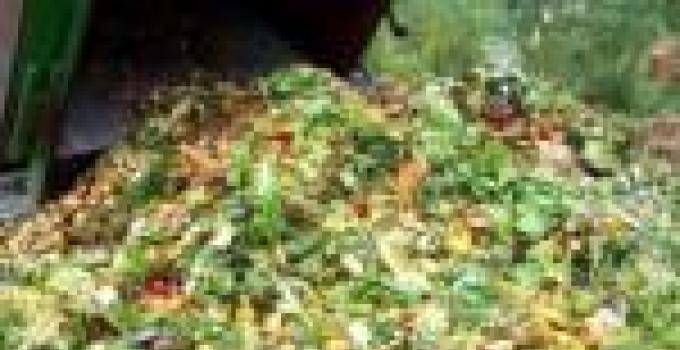The Ghana Food and Drugs Authority (FDA) was established in August 1997 under the food and drugs law 1992(PNDC Law 305B). It was mandated by the Public Health Act to among other things regulate food, drugs, medicines, cosmetics, medical devices and tobacco products. It provides and enforces standards for the sale of most of our consumables.
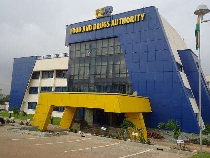
FDA
Like any other government Institution, they are faced with a lot of challenges that cripple their effort towards maximum and efficient operations. Poor funding, lack of proper supervision, bureaucracy and staff competence are key among their challenges.
Despite these challenges and impediments, they do their best to ensure what we consume is safe. You could periodically see their personnel visiting some shops and factories to survey how food is produced, packaged and handled. The recent Sudan IV issues, however, raise a lot of questions on what and how much more is needed to be done.
The main problem comes from the fact that there is usually poor surveillance on the local markets and food joints that supply food to a sizable number of the Ghanaian population. The marketplaces in Ghana are just numerous whiles the FDA is understaffed. Their periodic visits and surveillance of supermarkets, shopping malls, and factories are well known; the tomatoes and fishes at the agbogbloshi market are however left at the mercy of the flies.
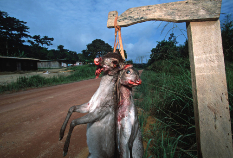
Bushmeat for sale
This poor surveillance and the freedom created have led to a number of developments and innovations that have serious implications on the consumer. A lot more people are selling pharmaceutical drugs on wheel burrows under the open sun; formalin is been used to preserve fishes and bush meat because it can delay their decay. This formalin has been labeled in 2011 by the U.S National Toxicology Program as a human carcinogen.
A number of studies carried out have shown high levels of DDT in the fishes we buy from the market. The DDT is used in poisoning the fishes at sea so that they float on it for easy gathering. We eat fruits and vegetables prematurely ripen with carbide that causes cancer and neurological disorder. In water, this carbide emits heat that forces fruits to ripe within 24hours. Food adulteration is on the rise and we do not even know what we eat anymore. Who is to be blamed?
The unfortunate part is that most of the market women engaged in these activities do not know much about the negative implications of what they do. I once spoke to a number of galamsey boys who used mercury, yet knew nothing about it. They called it ‘MED’. It is rubbed with the fingers together with the ore to obtain the gold. Mercury is toxic to the central nervous system and is extremely harmful when inhaled. These things do happen in our marketplaces.

Mercury
A number of factors contribute to these practices. Research has shown that as much as half of harvested crops are lost between the fields and the consumer in developing countries like Ghana. Key among such factors include poor road network in rural farming communities, lack of access to ready market and absence of storage facilities and factories to process what is harvested from the farms. A pile of rotten oranges on our market and streets is no more an eyesore. How many farmers in our villages produce crops and have no one to buy them? Has anybody ever considered the economic impact of these challenges on the farmer?
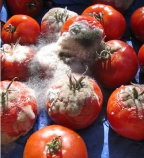
Rotten tomatoes in our markets (a.k.a mpotoi)
Desperate times require desperate measures.
Some fruits are forced to ripen under carbide when the time to sell is now or never. I chanced upon a farmer who was desperate to sell out his unripe fruits on the tree when he heard the news of encroaching fruit flies in the neighboring village. The fruits were harvested before full maturity and subjected to ripening in a well-established factory. Exactly 40% of the fruits got rotten being that most of them were not fully mature for subjection to ripening. Was he ignorant about pest control? The answer was that all pest control means available to the neighboring farmers did not work. The truth in this matter I do not know.
WHAT IS TO BE DONE?
Our regulatory institutions must broaden their scope by zooming on the activities of their market surveillance division. They are doing their best but more attention is needed at the local market that feeds the majority of the Ghanaian population. The following too is worth considering:
Collaboration
We have a number of NGOs and donor agencies that deal with food-related issues. Proper monitoring and coordination are needed. Some of them are doing well but the majority can be managed better if they are brought under surveillance. The German Corporation (GIZ) has already done a lot in this regard. It has successfully educated a number of pineapple farmers at the central Region in the area of best practices in pineapple cultivation. They periodically organize meeting and teaching sessions for the farmers to help them acquire the necessary tools and equipment they need for planting. They serve as mediators between the farmers and factories to come to a reasonable pricing. Last year May 2015, they organized a workshop in collaboration with the Central Regional Food and Agriculture Ministry to educate fruit processors about best available practices in fruit processing and to foster a link between processors and farmers. I believe this is worth emulating.
Bringing the Universities in
In a typical Ghanaian setting the slogan ‘what are our professors doing?’ will always be heard when we are confronted with challenges. Our local universities teach and do research in the areas of Food and Crop Science, Food Process Engineering, post-harvest technology, biotechnology and animal science. The University of Ghana has the West African Center for Crop Improvement (WACCI) - a World Bank center of excellence established to carry out research on crop improvement.
We need more of such institutions in the country. Their research must also focus on local crops and be made available to farmers in the country. We need to see more publications in the area of value addition, quality of crops in terms of resistance to drought and diseases and shelf life improvement for processed and semi-processed local foods. Our universities need to indigenize their internationalization process.
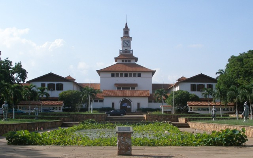
Balme library of the University of Ghana
One major challenge in this regard has to do with funding. Most of the researches carried out in African Universities are funded by International Donor Agencies who control the subject and means of carrying out the research. The result is that we study what will mainly benefit the donors. A beef selling company mounted a crusade in India to spread the Gospel of Jesus Christ.
Their aim was to broaden their customer base by converting more Hindus into beef eating Christians. The gospel they were preaching was not according to Mathew, Mark or Luke. It was according to the C.E.O of the Company. We need to sponsor Ghanaian oriented research.
Engaging students in our tertiary institutions
Continues and regular surveillance of the uncountable markets in Ghana are indeed a big task. The FDA surveillance division may need a lot of staff to successfully monitor these places. One available option is to merge with tertiary institutions and make good use of the large students’ population on a research basis. Various inspection teams can be created to continuously monitor certain areas and food items.
The market surveillance departments of the FDA can turn some of their challenges into research topics for students to work on during their final years at the school. The advantages will be numerous. The cost of operations will be minimal on the side of the FDA; their effectiveness will increase and also boost the practical knowledge of students in our school.
It will be the beginning of the indigenization of our academic experience. It will bring to light some of the major problems in our marketplaces and even uncover the sources of the poisons in our foods. Students can be motivated to come up with quick, rapid and cheaper means of detecting food poisoning and adulteration as in the use of plain white paper to detect Sudan IV in palm oil in what appears to be a crude chromatographic method. Some people immerse apples in hot boiling water to remove the lining around them. More of such things do exist and our students can bring them up.
In conclusion, I will like to emphasize that we are what we eat. We need to give serious attention to food production, processing, and marketing in our country. The need to safeguard the security of our food must not rest on our regulatory institutions alone. It must be a collective responsibility. Citizen vigilantes must come in. Our local newspapers, TV and radio stations must show much interest in these areas. Let’s join hands to keep Ghana safe.

